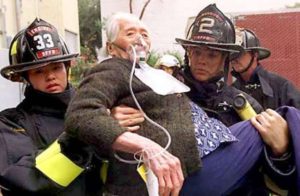
by Cate Kortzeborn
It’s never too late to quit smoking. While it’s best to stop as early as possible, kicking the smoking habit at any age will enhance the length and quality of your life. Many smokers try every year to stop smoking but often find that it is extremely difficult to do so. Some smokers try to replace smoking with alternative methods such as e-cigarettes are vaping. Others read up on alternative methods in the hopes that they may be able to find a way to help them fight their cravings. Studies show that one way of doing this could be the use of CBD Oil, from somewhere similar to Revita Oil, giving smokers a variety of options that could help them take the steps to quit once and for all. So, you might be struggling to quit smoking, but remember you are not alone. There are loads of ways that you could stop smoking. For example, some people like to try nicotine gum, whilst others prefer vaping instead. There are different types of vape pens that you could get if you are interested in trying vaping as an alternative to smoking. There are loads of ways that you can try to stop smoking though, it all depends on what works best for you, as every person is different. For example, you might find that something like nicotine toothpicks is a better way for you to stop (if this is something that interests you then you can buy nicotine toothpicks here). However, there are loads of other things that you could consider.
As soon as you stop, your body begins to repair the damage caused by smoking. You’ll also save money and you won’t have to run outside your home or office every time the urge to light up hits you! No one said giving up smoking will be easy, but it is in your best interest to give this up as soon as you can. The use of a vaporizer as been an successful route that many people have gone down to help stop smoking. You just need to find what works best for you. And don’t give up.
Medicare now covers counseling sessions to help you stop smoking, even if you haven’t been diagnosed with an illness caused by tobacco use. You pay nothing for smoking cessation counseling, as long as you get it from a doctor or other qualified provider who accepts Medicare reimbursement.
Many state Medicaid programs cover smoking cessation services as well.
Smoking tobacco can cause many diseases, including heart disease, respiratory diseases, and lung cancer , the leading cause of cancer death in the U.S. More than 56 million Americans still smoke tobacco, but quitting can reduce your risk of getting these diseases.
So if you have Medicare or Medicaid, make a note to talk with your doctor about quitting. Medicare covers eight face-to-face smoking cessation counseling sessions during a 12-month period.
What happens in these sessions? Your doctor may follow the “5 A’s” approach: ask patients about their smoking habits; advise them to quit; assess their willingness to quit; assist their attempts to quit; and arrange follow-up.
To help you get off and stay off tobacco, your physician may prescribe one of seven antismoking drugs currently approved by the U.S. Food and Drug Administration. Medicare often covers such medications under its Part D prescription drug program.
I also want to mention that Medicare covers screening for lung cancer with Low Dose Computed Tomography. To qualify, you must:
- Be age 55-77;
- Be either a current smoker or have quit smoking within the last 15 years;
- Have a tobacco smoking history of at least 30 “pack years” (an average of one pack a day for 30 years);
- Not have any signs or symptoms of lung cancer;
- Get a written order from your physician or qualified non-physician practitioner.
You pay nothing for this screening if your doctor or other qualified provider accepts Medicare reimbursement.
For more information on kicking the habit, visit http://www.cancer.gov/about-cancer/causes-prevention/risk/tobacco/help-quitting-fact-sheet.
Cate Kortzeborn is Medicare’s acting regional administrator for Arizona, California, Hawaii, Nevada, and the Pacific Territories. You can always get answers to your Medicare questions by calling 1-800-633-4227.
